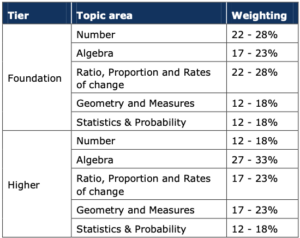What you need to get started.
Ok so you can’t concentrate, or maybe you’re procrastinating. The first thing is to get some headphones and carefully choose some music. When I say music, I mean instrumental music (no lyrics), Lo-Fi does the trick. That will help with the noise and help to maintain your focus on what you’re doing.
The next thing is to ask yourself if you have a good, comfortable space to study? Get that place. Ideally a desk, and not your bed or a couch. You need to feel like you’re in a place for working and not resting. One other thing before you start, turn off your phone or at least put it on silent and turn it over. Nothing is worse for breaking the flow of revision than constant alerts and vibrations from something that just might be a bit more exciting than studying physics.
How to get going.
Now that you have your space, you should sit down and figure out what you need to do. Spend an hour and make a plan to study. Two hours a day should be sufficient, especially if you’re starting early on in the academic year. If you can do more, great but don’t be sitting there for 6 hours after school, for most people that won’t be necessary and you’ll just burn yourself out.
How do you focus for two hours? You don’t. You focus for 20-minute bursts. Then take a 5-minute break. When I say focus I mean focus. Just get on with the work. 5 cycles of 20-minutes of work, followed by 5-minute breaks will bring you to the two hours. It will be much easier than you think. If you can’t focus for 20 minutes then you need to work on your self-control. Start off with 5-minutes of intense focus, then build up to 20-minutes. This approach is called the Pomodoro Technique and this video by Dr J from Med School Insiders is a good explainer.
What to do next.
So what should you do in those 20 minutes? It depends on what you need to do. Do you understand the content? Are you even familiar with it at all? If not then you should read from a textbook. Fortunately, the Pomodoro Technique is a very powerful way to get through long reading tasks. As a quick aside, I read several textbooks cover-to-cover using this technique in a year during my Master’s Degree and I achieved a Distinction grade. If you are familiar with the content but need to memorise then consider using flashcards, or flashcard software. Again, Dr J from Med School Insiders has our back with this one, take some time to watch some clips from his channel, he is the master of productivity. Work hard like this until the end of January. Split your time between the subjects you care about most and when you feel ready, bring in the other subjects. You need to prioritise in order to maximise your performance where it matters most. Unless you want to be a doctor and study at Oxbridge, then you don’t need eleven 9’s at GCSE.
Don't waste time.
Finally, do not waste your time on topics you can’t get your head around. Try to learn and have a cut off point, broad coverage is better than an in-depth understanding of any single topic. When you have a broad understanding, move on to developing a deeper understanding. This is an especially important point since the marks for exams are not always distributed evenly between topics. As an example of this uneven weighting take a look at the table below, as you can see Statistics and Probability make up between 12 and 18% of the total available marks. As a rough guide, that means that you should not spend more than 18% of your maths studying time on those topics, even if they are much harder to understand.

Mathematics GCSE topic weightings for Edexcel, Source – Pearson Edexcel Specification.
Consider using these tables found in GCSE and A-Level specifications to hack your revision. Make sure that you do not ignore those lower weighted portions and use self-testing to find out where you need to gain the most marks. If geometry is your worst topic, for example, spending some time there could give your exam performance a good boost!
Before exam season starts.
In February, start on past papers. Print them out, all of them if you have time and the resources. Including those from other exam boards in certain subjects where there’s little difference between exam boards, e.g science. Fill one out at a time and use a timer to replicate exam conditions. Don’t stare at the timer. Then mark the paper using the mark scheme, reading carefully and taking mental notes of your mistakes. Do not cheat, do not be loose with your marking. Admit you got the question wrong and try to apply what it says on the mark scheme next time to similar questions. Then move on to the next one, rinse, repeat. If you’re lacking in confidence, try a quiz to get an idea of how well you’re doing in science. If you are really struggling, consider hiring a private tutor, they will know how to help you best and make the most out of your time.
Did this post help? If so leave a comment or maybe share it on social media!
Summary.
We are all able to be productive, we just need to work on it. We suggest that you prepare your workspace carefully to minimise distractions and maximise efficiency, a desk in a well lit, warm and quiet place is best. Then use the Pomodoro Technique as described above to beat procrastination. Study smart and don’t waste your time on single topics, get broad coverage of the material and then circle back. Use past papers extensively before exam season, do them properly and most importantly mark them accurately.
We hope that this was a helpful tutorial and we wish you all the best with your exams.
If you want to find out more about our services, please contact us on this page, see our FAQs, or feel free to call or email Discover Tutoring directly.
Unsure about how tutoring can help you? Take a look at this article.

